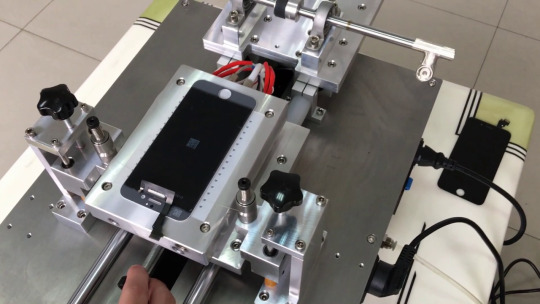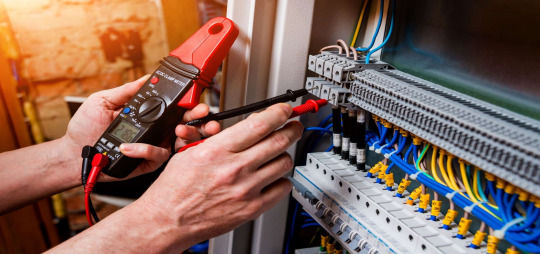Power hydraulics is a branch of engineering that deals with the generation, control, and transmission of power using pressurized fluids, usually oil or water. It is widely used in industrial machinery, construction equipment, aerospace, and automotive systems due to its ability to provide high force with precision.For more INFO visit us:Name:- Power Hydraulics DubaiWebsite: https://www.powerhydraulic.ae/Phone: 9714-2766511Address: W/S 142A & 143B P.O Box No 37960 – Dubai Maritime City – DubaiE-mail ID: [email protected] Map: https://maps.app.goo.gl/KQ4rhhnRXQYpf8PfA
Don't wanna be here? Send us removal request.
Text
The Role of Hydraulic Companies UAE in Marine Deck Machinery Repair
In the dynamic and demanding environment of the UAE, hydraulic systems are essential to ensure smooth operations in a variety of industries. Among these, the marine sector relies heavily on hydraulic systems, particularly for marine deck machinery, to maintain performance and operational efficiency. Whether it's loading and unloading cargo, lifting heavy equipment, or handling anchors, marine deck machinery plays a vital role in offshore operations. To keep these systems running smoothly, Hydraulic Companies UAE specialize in offering maintenance and repair services tailored to meet the needs of the marine industry.
The Importance of Hydraulic Systems in Marine Deck Machinery
Marine deck machinery includes various equipment, such as cranes, winches, and capstans, all of which depend on hydraulic systems for their operation. These systems provide the necessary force to perform heavy lifting tasks, making them indispensable in the marine industry. A malfunction in any of these systems can lead to delays, costly repairs, or even safety hazards.

Hydraulic systems work by using high-pressure fluid to power machinery, and any breakdown in these systems can lead to significant operational disruptions. For this reason, Marine Deck Machinery Repair is crucial to ensuring that all equipment remains operational and safe for use. Frequent inspections, maintenance, and repairs are required to keep these systems functioning at their best, preventing unexpected downtimes that can impact productivity.
Common Hydraulic System Issues in Marine Deck Machinery
Marine deck machinery faces a unique set of challenges due to the harsh conditions in which it operates. Exposure to saltwater, extreme temperatures, and heavy use can accelerate wear and tear on hydraulic components. As a result, these systems are prone to several issues:
Leaks in Hydraulic Hoses: Over time, hydraulic hoses can deteriorate, leading to leaks. A simple leak can result in a significant loss of hydraulic fluid, impacting the efficiency of the machinery.
Faulty Valves and Cylinders: Valves and cylinders are crucial parts of the hydraulic system, and if they malfunction, the machinery may fail to function properly.
Corrosion: Marine environments are notorious for causing corrosion in metal components, which can lead to the breakdown of hydraulic systems. Corrosion can cause parts to weaken or fail entirely.
These issues can disrupt marine operations and result in downtime, which is costly. Hence, having access to professional Marine Deck Machinery Repair services is essential for keeping machinery running smoothly.
Why Choose Hydraulic Companies UAE for Repairs?
Choosing the right Hydraulic Companies UAE is critical for effective marine deck machinery repair. These companies bring specialized knowledge and experience to the table, ensuring that repairs are carried out accurately and promptly. With access to advanced tools and technologies, these experts can diagnose problems quickly and provide efficient solutions.

Moreover, Hydraulic Companies UAE often offer preventative maintenance packages. Regular inspections and maintenance can help identify minor issues before they turn into major problems, saving marine companies time and money in the long run. Having a reliable partner for Marine Deck Machinery Repair can be the key to maintaining high levels of efficiency and safety in marine operations.
Conclusion: Why Choose POWER HYDRAULICS?
When it comes to repairing hydraulic systems and ensuring the longevity of marine deck machinery, POWER HYDRAULICS is the company you can rely on. Known for their expertise in hydraulic repairs and maintenance, they offer specialized solutions tailored to meet the specific needs of the marine industry. With their experience, professional team, and commitment to quality, POWER HYDRAULICS ensures that your hydraulic systems stay in top working condition, preventing costly downtime and enhancing the performance of your marine deck machinery.
0 notes
Text
Is Your System Ready for Saip Accumulators’ Edge?
Saip Accumulators deliver a competitive edge by optimizing performance, reducing energy consumption, and ensuring system stability across diverse industrial applications. Engineered with precision and innovation, these accumulators are built to handle peak pressures, absorb shocks, and store energy efficiently. Their advanced design supports smoother operation, longer equipment life, and reduced maintenance costs. From hydraulic presses to renewable energy systems, Saip Accumulators offer reliability you can count on. Don’t let outdated technology hold your operations back—upgrade to smarter, more efficient systems now. Explore the Saip advantage—visit our official website today and take your system to the next level!

0 notes
Text
What Causes Failures in Marine Deck Machinery?
Marine deck machinery plays a crucial role in ensuring the operational efficiency and safety of ships. This includes equipment such as winches, windlasses, cranes, and capstans, which are responsible for critical functions like anchoring, mooring, and cargo handling. However, due to their constant exposure to harsh maritime conditions, these machines are susceptible to various types of failures. Understanding what causes these breakdowns is essential for preventing costly downtime and ensuring smooth operations at sea.
Common Causes of Deck Machinery Failures
Failures in marine deck machinery can occur due to several reasons, ranging from environmental factors to lack of maintenance. Below are the most common causes:

1. Corrosion from Saltwater Exposure
Saltwater is highly corrosive and can significantly damage metal components over time. Without proper anti-corrosion coatings and regular inspections, vital parts may weaken and break.
Corrodes bolts, gears, and other exposed parts
Leads to rust and reduced mechanical strength
Increases the chance of system failure mid-operation
2. Hydraulic System Leaks or Malfunctions
Many marine deck machines operate using hydraulic systems. Any leak or malfunction can impact the machine’s performance or render it inoperable.
Damaged seals or hoses lead to fluid leakage
Low hydraulic pressure reduces efficiency
Contaminated oil causes internal wear
A professional marine deck machinery repair service will always check for hydraulic issues first as they are among the most common failure points.
3. Overloading or Improper Operation
Using equipment beyond its rated capacity or mishandling it can result in severe mechanical failure.
Overstressed components wear out faster
May lead to snapping of cables or failure of winches
Risk of injuries and vessel delays
4. Lack of Preventive Maintenance
Neglecting regular inspection and maintenance often leads to unnoticed minor faults that escalate into major failures.
Missed signs of wear and tear
Accumulation of dirt and grease in moving parts
Unscheduled breakdowns and higher repair costs
5. Aging Components and Fatigue
Like all mechanical systems, marine deck machinery has a finite lifespan. Over time, metal fatigue and aging lead to cracks, distortion, and eventual breakdown.
Reduced performance despite normal operation
Greater risk of failure under stress
More frequent need for replacements
6. Electrical Control Failures
Modern deck machinery often includes electronic control panels or automated systems. Any short circuit, wiring fault, or system glitch can disable the entire machinery.
Sensor failures causing inaccurate operation
Motor control failures or shutdowns
Damage from moisture ingress into control panels

Preventing Machinery Failures
Preventing machinery failure starts with understanding the risks and taking proactive steps. Here’s what ship owners and operators should do:
Schedule routine maintenance checks
Apply proper lubrication and anti-corrosion treatments
Train crew on correct machinery use
Use original spare parts for replacements
Keep detailed logs of repairs and inspections
Check Out:- How Does Hydraulic System Design Ensure Efficiency?
Conclusion: Trust the Experts for Reliable Repairs
Ignoring signs of mechanical failure can result in costly repairs and dangerous situations at sea. That’s why it’s essential to act quickly and seek help from professionals. Power Hydraulics specializes in marine deck machinery repair, offering expert diagnosis, quality parts, and dependable service to keep your equipment running smoothly. Protect your vessel, cargo, and crew—choose experienced hands when it comes to marine repairs.
0 notes
Text
How Does Hydraulic System Design Ensure Efficiency?
Have you ever wondered how heavy machines like excavators, airplanes, and even hydraulic presses work so smoothly and efficiently? The secret behind their power and precision lies in hydraulic system design. This engineering marvel enables the transfer of force using pressurized fluid, making it an essential part of various industries. Whether it's in construction, aerospace, or manufacturing, hydraulic systems provide unmatched reliability and efficiency. But what exactly makes a hydraulic system efficient, and how is it designed to ensure maximum performance? Let's explore.

Key Components of a Hydraulic System
To understand hydraulic system design, it is essential to know its main components:
Hydraulic Pump – The heart of the system, which generates fluid flow and pressure.
Hydraulic Fluid – The medium that transmits power within the system.
Control Valves – These regulate the direction and pressure of the fluid.
Cylinders & Actuators – Convert hydraulic energy into mechanical motion.
Reservoir – Stores hydraulic fluid and helps maintain pressure stability.
Filters – Remove contaminants from the fluid to prevent damage.
Each component plays a crucial role in ensuring the system operates smoothly and efficiently.
Principles of Hydraulic System Design
A well-designed hydraulic system must consider the following principles to ensure efficiency and durability:
1. Proper Fluid Selection
The type of hydraulic fluid affects the system’s efficiency, cooling, and lubrication. Choosing the right fluid prevents wear and tear, reduces energy loss, and enhances overall performance.
2. Optimal Pressure and Flow Rate
Designing a system with the correct pressure and flow rate ensures smooth operations. Excess pressure can cause damage, while insufficient pressure may reduce efficiency. Engineers calculate these values carefully to balance power and safety.
3. Efficient Energy Utilization
Minimizing energy loss is critical. This can be achieved using energy recovery systems, optimized valve designs, and reducing resistance in pipes and hoses.
4. Leak Prevention and Maintenance
A poorly designed hydraulic system may develop leaks, leading to reduced efficiency and increased maintenance costs. Proper sealing techniques and regular maintenance checks help prevent such issues.
5. Compact and Lightweight Design
Modern hydraulic systems focus on compact and lightweight designs without compromising performance. This is particularly important for aerospace and mobile equipment applications.
Applications of Hydraulic Systems
Hydraulic systems are widely used across industries due to their ability to generate high power with minimal effort. Some key applications include:
Construction Equipment – Excavators, bulldozers, and cranes use hydraulic systems for lifting and movement.
Automotive Industry – Braking and steering mechanisms in vehicles rely on hydraulics.
Aerospace – Aircraft landing gear, flight controls, and braking systems use hydraulics for smooth operation.
Manufacturing – Hydraulic presses, injection molding machines, and robotic arms use hydraulics for precision work.
Marine Industry – Ships and submarines use hydraulic steering and control systems.
Conclusion
A well-planned hydraulic system design ensures efficiency, reliability, and longevity. By carefully selecting components, optimizing fluid flow, and preventing leaks, engineers create systems that power various industries with precision and ease. Whether in construction, manufacturing, or transportation, hydraulic systems remain an essential part of modern technology, proving their significance in the ever-evolving industrial landscape.
For more INFO visit us:
Name:- Power Hydraulics Dubai
Website:- https://www.powerhydraulic.ae/
Phone:- 9714-2766511
Address:- W/S 142A & 143B P.O Box No 37960 – Dubai Maritime City – Dubai
E-mail ID:- [email protected]
Google Map:- https://maps.app.goo.gl/KQ4rhhnRXQYpf8PfA
1 note
·
View note